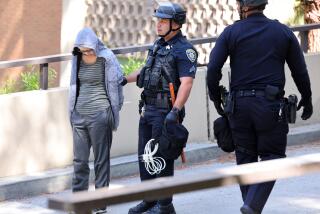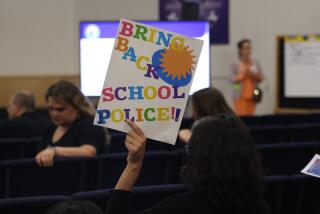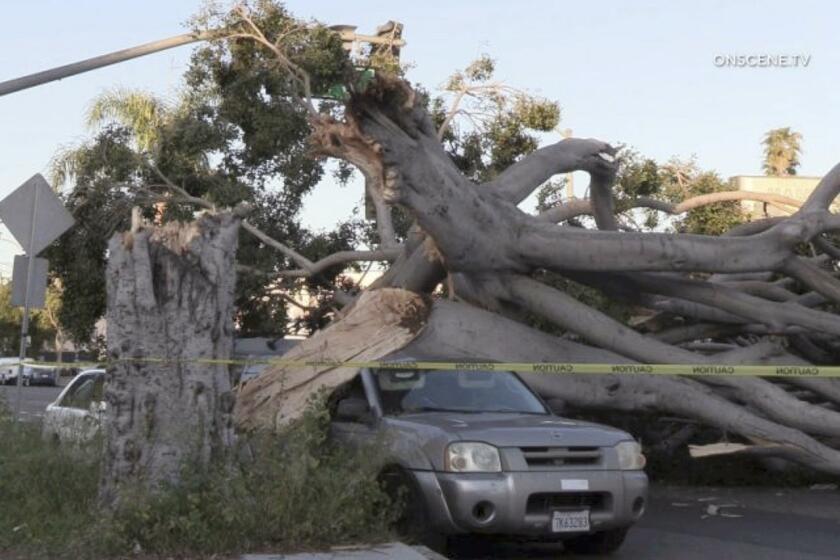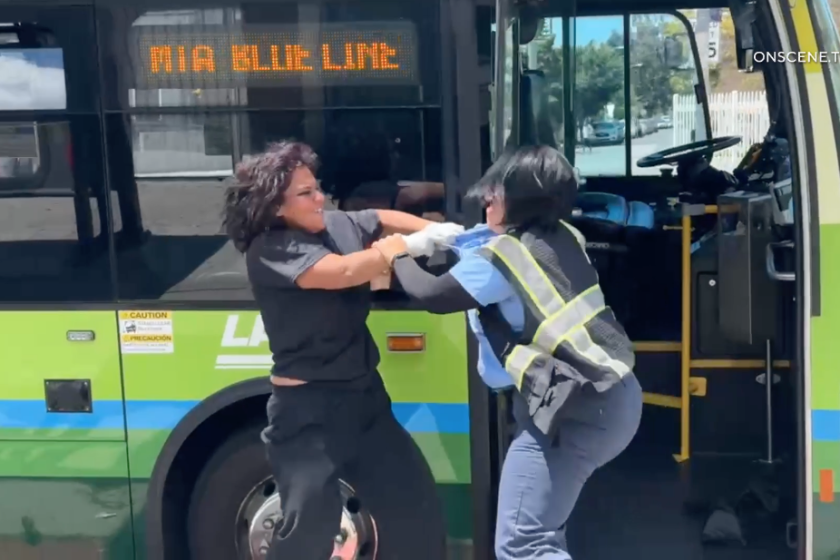Giving homeless vets the shelter they need
Veterans with post-traumatic stress disorder and other psychological diagnoses end up living in the streets because they’re too disabled to seek help, advocates have long argued.
The answer, they say, is permanent supportive housing, with medical, mental health and substance abuse treatment wrapped on-site around vets’ residential complexes. Bureaucratic inertia and neighborhood opposition have stalled development of this type of housing, officials said.
Now Los Angeles County, which has the most homeless veterans in the nation, has taken a step forward with a $48-million permanent supportive housing project called New Directions Sepulveda I and II in North Hills in the central San Fernando Valley. The project’s grand opening was Friday.
Built with private, state and federal money, the project converted two earthquake-damaged buildings at the U.S. Department of Veterans Affairs’ Sepulveda Ambulatory Care Center into 147 light-filled studio apartments, a dining and event area, a computer lab, laundry facilities, TV rooms and other common areas.
It’s the first permanent supportive housing project on veterans’ land in California, and one of the first in the nation, officials said.
In addition to medical services, the veterans will have access to tennis courts, a gym, a cafeteria and a general store on the grounds.
“People have difficulty stabilizing, they need wrap-around supportive services to help re-integrate into society,” said Michelle Wildy, chief of community care for the VA’s greater Los Angeles healthcare system.
The complex, which began filling up at the beginning of September, has 71 residents, mostly veterans of the Vietnam War, post-Vietnam service and the Gulf War.
All have been homeless a year or more and most suffer from post-traumatic stress disorder or a major depressive disorder.
Willie Edward Turnipseed, 55, was a U.S. Air Force ejection seat mechanic between 1981 to 1983, serving in the Philippines, he said.
He later worked for the city of Los Angeles, but after a dispute over a work injury he lost his home and became “a rolling stone,” staying on and off the streets before landing on skid row.
Turnipseed said he has a bipolar disorder and has struggled with substance abuse.
“I’m just so grateful for this,” he said, choking up as he showed off his 400-square-foot apartment Thursday.
A Dodgers pen set hung on the wall and his bed was neatly made with a fashionable blue-gray quilt cover and shams.
“Skid row was terrible,” he said. “Everything I need is here.”
The complex was developed by the U.S. Department of Veterans Affairs; New Directions for Veterans, a residential treatment agency that will handle the on-site services, including case management; and a Community of Friends, a nonprofit affordable housing developer for homeless people with mental illness.
More permanent supportive housing for veterans is under construction in El Monte and Boyle Heights, but Wildy said more is needed.
“We really need to have project-based housing, but we also need landlords to participate, and communities to participate in making affordable housing,” she said.
--
More to Read
Start your day right
Sign up for Essential California for news, features and recommendations from the L.A. Times and beyond in your inbox six days a week.
You may occasionally receive promotional content from the Los Angeles Times.






